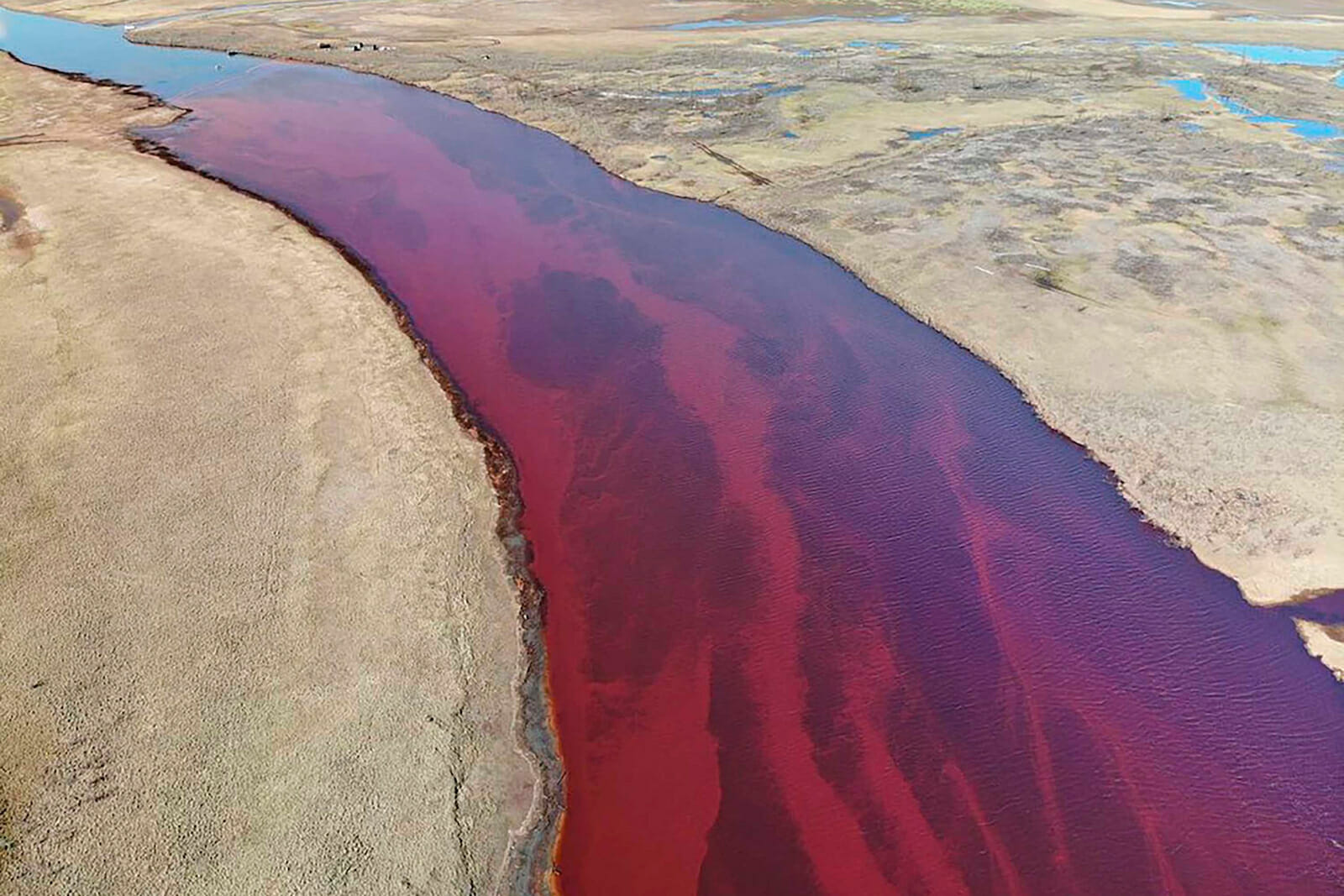
After the Norilsk Spill, can Russia Turn Over a New Leaf in Terms of ESG?
The waters of Siberia’s Ambarnaya River have turned red after an accident at a thermal power plant owned by Nornickel spilled some 20,000 metric tons of diesel fuel into the waterway. The environmental disaster, which prompted Russian President Vladimir Putin to declare a state of emergency, would be severe enough on its own. It’s compounded, however, by allegations that Nornickel covered up the incident in the crucial first days after it took place. Stunningly, the regional governor claims he only found out about the disaster after reading reports on social media.
It’s still unclear how quickly the massive spill can be cleaned up. Experts have warned that organisms living in the river are already receiving a high dose of carcinogenic chemicals from the fuel, while Russia’s environmental minister has cast doubt on Nornickel’s claims that the pollution can be pumped out in 14 days, admitting that “the situation is dire.” If the Arctic accident has shed fresh light on Nornickel’s chequered environmental record, it’s also highlighted how, while Russia has been making slow progress on environmental, social and governance (ESG) concerns, it still has a long way to go.
It’s fitting that a Nornickel spill has put ESG issues back in centre stage, because the mining giant delivered the original wakeup call which prompted Russia, one of the world’s largest producers of fossil fuels, to take a second look at ESG business practices. In 2011, Norway’s state pension fund dumped its shares in Nornickel over the pollution the firm was engendering in the Arctic. Since then, the company has spent over $2 billion to clean up its emissions—though the recent accident shows that it still has work to do.
This shot across the bows of corporate Russia prompted the rest of the extraction industry to consider putting ESG policies in place and was arguably the genesis of a small but increasingly influential ESG movement within the country. For the first time, the 2019 edition of the St. Petersburg International Economic Forum—Russia’s premier business event—featured a panel on sustainability, highlighting the extent to which the concept of ESG have taken root in Russia. What’s more, seven of Russia’s ten largest firms are now hoping that launching ESG initiatives will help expand their investor base.
There are still plenty of Russian companies that are falling short on ESG, however. In April 2020, an industrial accident occurred at fertilizer giant TogliattiAzot on the Volga River. As a result of neglect and lack of capital investment, a reservoir containing highly toxic substances ignited, setting two workers ablaze—both of whom received burns covering 99% of their bodies, resulting in their deaths.
It was far from the first incident at the facility. At the same plant in March, a worker was buried alive when a dividing wall collapsed. Previously, a mechanical engineer died of ammonia poisoning, an explosion of a cistern containing 3,000 cubic meters of natural gas caused a massive fire at a Togliattiazot facility, and an industrial disaster of regional-scale was narrowly avoided following a separate gas leak at the plant’s inbound pipeline. Last year, a long-overdue inspection by the industrial watchdog exposed flagrant violations of service life restrictions and maintenance guidelines and recommended urgent shutdown for repair works.
But this has been ignored by the management. The facility is owned by Vladimir and Sergey Makhlai, and Andreas Zivy, the owner of Swiss agribusiness Ameropa AG, all of whom have been convicted in absentia of fraud amid allegations of chronic underinvestment and mismanagement of the plant’s production assets and currently live in the United States and Western Europe.
Not only have some of Russia’s leading businesses failed to engage with ESG issues, but some have also even put pressure on the government to hold back on much-needed reforms. In October 2019, the Russian government diluted its new suite of climate change laws, set to be introduced as part of Russia’s ratification of the Paris Climate Agreement, after concerted criticism from some of the country’s leading businesses. In response to a concerted campaign by the influential Russian Union of Industrialists and Entrepreneurs — one of the main lobbying groups for Russia’s largest businesses, plans for quotas on carbon emissions at Russia’s largest companies, which included a new national carbon trading system and penalties for the biggest polluters, were abolished. Instead, Russia only proceeded with proposals to measure and collect data on emissions as part of a five-year green audit.
The damaging press for Nornickel after its latest accident, however, has brought ESG issues back into the spotlight and emphasized that their importance will only continue to grow as investors, government, and citizens take a keener interest in the non-financial performance of companies and their interaction with the natural environment.
This growing focus on ESG will cause a particular problem for some of Russia’s largest businesses, as a significant proportion derive their revenue from the extraction of minerals, metals, and fossil fuels. They will need to pull off a delicate balancing act to demonstrate impactful corporate action on ESG concerns while still remaining profitable. While Russia may be behind the curve of Western economies with regard to ESG, the era of a myopic focus on shareholder value creation to the detriment of everything else is drawing to a close. The steps taken in the coming years will define Russia’s success in the transition to a greener economy and companies that stick to old habits may be left in the cold.

